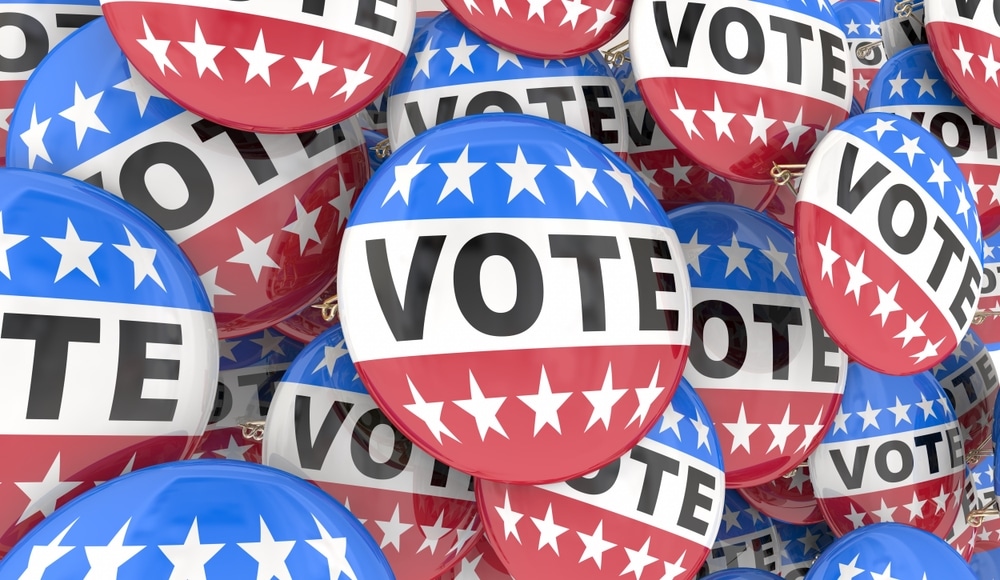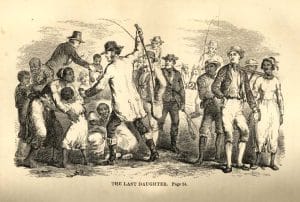As voters in Bucks County and across the Commonwealth ready for next week’s election, Pennsylvania Voice – a collective of voter advocacy agencies – recommends that people pay close attention to the judicial candidates.
“The most important thing in 2023 is protecting the courts and electing candidates that want fair elections,” said the group’s Executive Director A. Salewa Ogunmefun.
Ogunmefun urges voters to pay close attention to the judicial races. Making sure the correct judges are seated at the bench could make or break whether a constituent’s vote is counted at all.
READ: Voting and Abortion Rights Are On The Ballot In Pennsylvania’s Supreme Court Race, Advocates Say
Bucks County State Representative Tim Brennan knows first-hand the critical role the courts play in protecting voter enfranchisement. Brennan, attorney of record for Northampton County, represented the Board of Elections in 2020 as then President Trump sought to overthrow the official results in Pennsylvania. “Trump’s people weren’t fighting over counting the ballots. They wanted to remove curing ballots as part of the process.” PA law requires that when election officials find mistakes on a mailed in ballot, they contact the voter to allow them the opportunity to “cure” their mistake. “It’s a matter of due process,” Brennan explained. “Giving people who were going to lose their vote some notice so that they could fix it. Any time government is taking something away from people, the individual should be notified and given the chance to fix it.”
Brennan approached the case with confidence. He envisioned the Trump team’s anti-curing push as a strategy the former president’s lawyers might have floated without expecting to win. Brennan expected to see minor Trump lawyers in court. He didn’t expect to see Rudy Giuliani in a Pennsylvania courtroom prepared to fight against cured ballots. “I was really disappointed in America’s mayor – at how unprepared he was – at how foregone his arguments were. The only one he seemed prepared for had been removed [from the case] the day before.”
Recent history buffs know that Giuliani and his team lost that case – and failed again when they applied for relief to the third circuit of the U.S. Court of Appeals. The justices found against Donald Trump for President, Inc. concluding, “Free fair elections are the lifeblood of our democracy. Charges of unfairness are serious. But calling an election unfair does not make it so. Charges require specific allegations and then proof. We have neither here.”
Brennan, having successfully defended the enfranchisement of voters, would like to see the legislature make good on its mission to further include all eligible voters as well as approve pre-canvassing measures. The Pennsylvania County Commissioners Agency also supports SB 784, the seven day pre-canvassing measure that is bogged down in the Senate.
The House and Senate have proposed updates to election laws, but nothing’s passed in Harrisburg to further enfranchise voters since before the pandemic. Bills ranging from moving the date of presidential primaries to voter ID requirements have stalled in one or both legislative chambers.
READ: Here Are Quick Fixes Bucks County Offers For Most Potential Vote By Mail Problems
Ogunmefun explained, “Act 77, the most recent election code change legislation in recent Pennsylvania history, gave us vote by mail.” Proposed and passed by Republicans, Act 77 came under fire in the 2020 presidential election because late election tallies changed the overall expectations from those based on election night in-person voting numbers.
Some of the very same legislators who approved the mail-in voting measure now sit in obstruction of proposals to start counting those early votes prior to election day. Counting mailed ballots in advance would make results available by election day. Consequently, PA elections would be certified in a more-timely manner. And while House Bill 847 allowing for seven days of “pre-canvassing” – a term used to describe the counting of mail-in votes prior to election day – was approved by the house last spring, it has yet to pass the Senate.
In light of the Pennsylvania legislature’s recent inability to move legislation – notably the Republican-controlled state Senate – that refines and improves statewide voter regulations forward, Election Day 2023 may be more important than many constituents normally consider off year elections.
State Senator Dave Argall recently proposed a measure to move the primary election back from late April to mid-May, in order to eliminate conflict for observant Jews who will celebrate Passover during the planned primary date. The proposal, Senate Bill 224, lost support when amendments requiring voter ID were added.
Pennsylvania Voice’s Ogunmefun sees simplifying and expanding voting options as the solution to avoiding holidays, not just in 2024, but during any election cycle. If the legislature expanded early voting periods, primary elections need not be moved.
As for the proposed amendments, “Pennsylvania already has voter ID.” Ogunmefun stressed this fact when discussing the importance of first-time voters providing proof of identity when they arrive at the polls.
And while it’s true that under current law, veteran voters should not have to provide ID, Pennsylvania Voice internal polling reveals that demands for ID are disproportionately made against women and people of color. “A lower number of white and rural voters (43% each) say they were asked to show ID to vote compared to 59% of voters of color, which ticks up to 62% for women of color.”
Polling data also indicates that less educated voters are likewise discriminated against, “49% of non-college voters had to show ID, compared to 39% of college educated voters.” And lower income individuals face unnecessary voter obstruction as well, “57% of voters who makes less than $45,000 had to show ID compared to 39% of those who make more than $75,000.” Older voters are likewise more readily accepted at the polls than their younger counterparts.
Ogunmefun cautions that because Pennsylvania has a low threshold to contesting votes, some voters may be targeted and challenged without merit. Their new data shows that young people, people of color and lower income voters should be prepared to be challenged at the polls – at least until the legislature fixes the problem. “Malcolm Kenyatta has proposed changing what is required to challenge a ballot. Right now, all you need is $25 – no proof – to challenge anyone.”
For now, all these ideas, changes and fixes are stalled. Depending on what the legislature moves forward next year, voters will look to 2024 with a mix of opportunities to cast their ballots. And while Ogunmefun stresses the importance of judicial races, Representative Brennan places his priority list a little closer to home. “I think the biggest races are the Commissioners in Bucks, and in my district – Central Bucks School Board.” And while Brennan did not specifically call out the electoral successes of Republican election deniers in the spring primaries, Bucks County Beacon’s Catherine Caruso’s post-primary election report provided what their victories could mean here.







